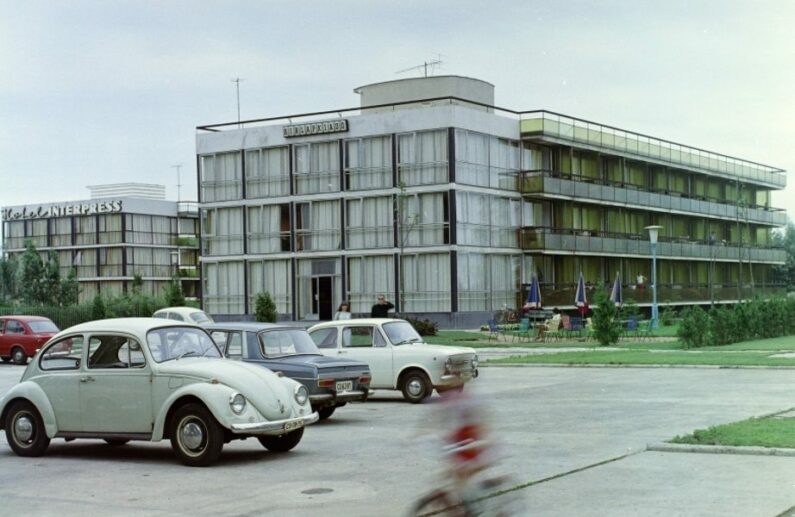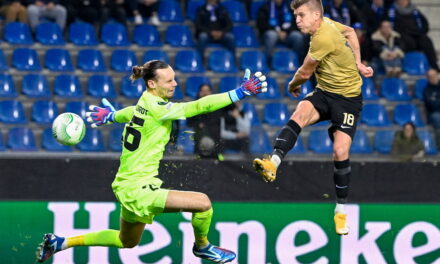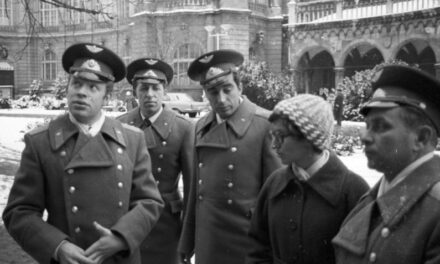The historian Zsuzsanna Borvendég's series was originally published on the PestiSrácok website, but there are certainly those who missed it. But those who haven't read all the parts should also read it again. Knowing the whole picture, can we understand how we got here?
Ever since humanity became a consumer of news, and reading newspapers became the most common way of getting information, the authorities of all times have seen the press as an institution to be influenced and controlled. The media began its world conquest during the French Revolution, and by the twentieth century, with the appearance of motion pictures, it had become the most important tool of propaganda.
The Bolsheviks were at the forefront of using the mass media for power purposes. The Soviet method developed from the twenties and thirties served as a model for other political leaders. The media gained an ever-increasing role in world political games: both anti-life dictatorships called socialists used it to their advantage, but the world that defines itself as a bourgeois-liberal democracy also quickly assessed its importance.
The presence of purchased journalists
In order to influence the media, however, not only politicians and journalists were needed, but the secret services were wedged between the two actors as mediators. Their role was unheard of - and obviously still is today - since it is possible to influence most effectively when it is not at all obvious who is behind the dissemination of the various information, what intentions drive the various news, whose interests are served by the "independent ” experts.
Secret service tools are needed to keep political or even economic clients in the background, so it is understandable that the press world and the intelligence/counterintelligence profession are still so closely intertwined today that we would probably be shocked if we could count exactly how many - using Udo Ulfkotte's a "bought journalist" works around the world.
Disguised as civil initiatives
Press influence can be realized from controlled or even ordered, even pre-written newspaper articles to the least visible forms, the number of possibilities is limitless. The Soviets liked to hide their influence intentions behind "civilian" initiatives. They believed that the various organizations were working to protect the interests of certain groups in society, but in fact they were associations created at the initiative of the communist secret services, which, behind the goals disguised as humanists, actually represented the world domination interests of the Soviet Union. These organizations placed themselves at the height of the ideals of moral purity and incorruptibility, and criticized the given political power with an unappealable judgment. But of course, all this could only be done in Western democracies, since in real dictatorships there is no room for the operation of any kind of civil organization. In the Soviet Union, there was no chance for the activities of movements initiated from below, and they did not give room for hostile forces to disrupt the system internally.
During the Cold War, the free world led by the United States was a little behind, but it reacted to this trend, and media outlets that declared themselves relentlessly anti-communist soon appeared, broadcasting Western propaganda and promoting the capitalist economic model. At the same time, warfare was unequal in this area, since for a long time the Iron Curtain could only be loosened in one direction: communist agitation could appear anywhere and at any time in the West, but trying to do the opposite was almost impossible.
And NÚSZ appears
The virtual war took place along clearly visible front lines, with media workers in the foreground and secret service officers in the background. Following the example of the associations that lied to civilians, the Soviets tried to group journalists into an organization that could be controlled and therefore more easily influenced. In 1946, the International Organization of Journalists (NÚSZ) was established in Copenhagen, to which, in addition to journalists from the countries of the Soviet occupation zone, most Western European journalist associations joined. Soviet power politics paid special attention to the international organization with a large number of members, as it provided a channel of penetration into many hostile and still politically unstable countries , and therefore focused great efforts on ensuring that the management members were committed supporters of Bolshevik power. The endeavor was crowned with success.
In the long run, of course, it was not possible to maintain the appearance of neutrality, especially since the members of the management were almost without exception members of the Communist Party. The tension appeared already at the founding meeting, and by 1950 the democratic-minded journalists had left the organization. From then on, the NÚSZ was openly considered a front organization of the Soviet Union, it received its tasks directly from the Soviet Union, officially - the Czechoslovak State Security, StB. according to his information - he belonged to the International Department of the Central Committee of the Communist Party of the Soviet Union. Its seat was in Prague from 1947.
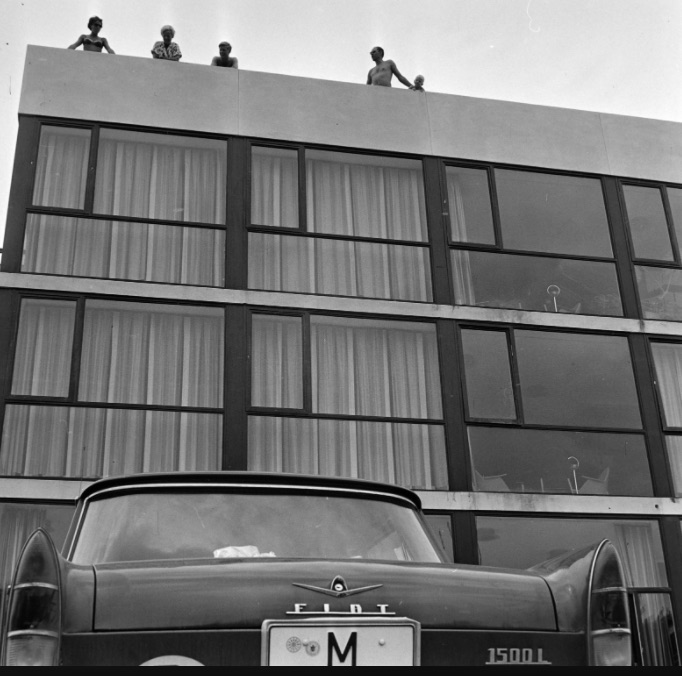
They listened and observed. Ferenc Deák promenade, Hotel Interpress International Journalist Resort / Photo: Fortepan.hu
The designation of the headquarters of the organization is by no means accidental. Known as "communist Geneva", the city was home to many international organizations that were under Soviet influence. In Czechoslovakia, the international labor movement was much stronger compared to other countries in the region, since the Communist Party was able to operate legally here between the two world wars. The communist parties of Western Europe - especially the French and Italian organizations - maintained close contact with their Czechoslovak comrades. Prague acted as a kind of bridge between the Soviet Union and its Western supporters. The presence of international organizations not only helped political relations and the possibility of spreading ideology, but also allowed for a serious economic and secret service build-up.
Terrorists, KGB - NÚSZ's own network
NÚSZ did not simply entrap journalists and spread propaganda, but also played a role in financing Soviet imperialist aspirations. After the Velvet Revolution in Prague, the news exploded like a political bombshell that the Czech capital was home to several important Soviet secret service cover organizations in the decades after the Second World War. One of the most important of the institutions operating mostly as non-governmental organizations was the International Organization of Journalists, whose activities the new political power tried to investigate, and they came to a startling result. Czechoslovak government statements and press reports firmly stated that the NÚSZ operated a terrorist training center in the country, its members were full of intelligence agents working for the KGB, and at the same time enormous economic abuses were revealed. Part of the wealth generated by the creation of various front companies was spent on the purchase of embargoed technologies, but it was also used to support Western communist parties.
And the amount in question exceeded all imagination. Jiří Pehe , they carried out a wide range of activities, from the operation of hotel chains to the software trade, the profit of which in 1989 exceeded 200 million crowns. This was approximately HUF 630,700,000 in contemporary value. (This is more than HUF 26 billion in today's value.) In addition, from the 1970s, the Czechoslovak state supported the operation of the organization with several million crowns a year, and they conducted significant foreign trade activities, of course without paying customs and tax burdens. Due to economic abuses, an investigation was launched against the organization in 1990, during which the director of NÚSZ, Miloš Jakeš Jr., the son of the former leader of the Communist Party of Czechoslovakia, was arrested for embezzlement and mismanagement.
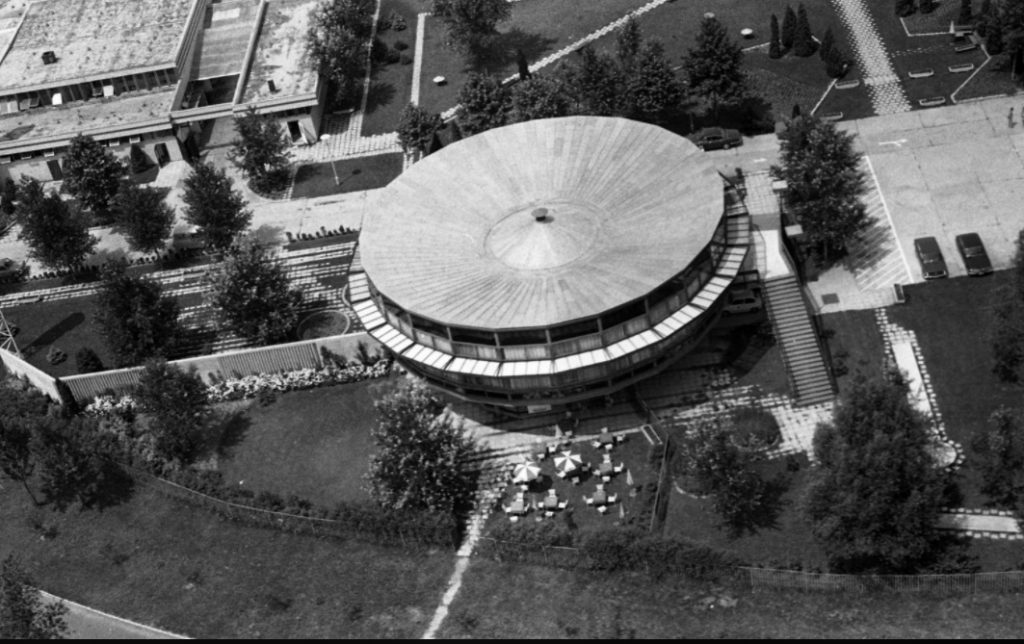
The famous resort. Balatonszéplak, International Association of Journalists Resort, Orion bar / Photo: Fortepan/Tamás Urbán
Officially, it operated from NÚSZ membership fees, the support of the International Solidarity Fund founded in 1953 and the International Solidarity Lottery, which existed since 1966, but it also received significant sums from the Czechoslovak state, the Soviet Union, and the profits of its various companies that enjoyed extraterritoriality, that is, significant economic advantages. According to the Czechoslovak state security, at the end of the 1980s, NÚSZ had close relations with thirty-four Western European companies, mainly West German, English and Austrian, presumably as owners, and they kept their accounts at financial institutions in Frankfurt and Cologne. The real source of money was therefore the companies, the headquarters of which was Videopress in Prague, which in 1987 produced a profit of 250 thousand dollars. The International Organization of Journalists also had an economic interest in Hungary, Interpress Budapest, which in 1986 paid 2.5 million crowns and 60 thousand dollars to the KGB cover organization. (At the exchange rate of 1989, this corresponds to HUF 11.5 million, which in today's value exceeds HUF 450 million.)
The Soviet secretary of the NÚSZ, VL Artyemov, visited Budapest on June 3, 1987, where he had a meeting with Péter Vajda , the MÚOSZ's deputy general secretary responsible for international affairs, József Pálfy , the president of the MÚOSZ, Zoltán Áldott, the head of the International Department of the MÚOSZ, János Veres , the International with the deputy head of department, Károly Megyeri , secretary general of MÚOSZ, and György Stark , former director of Interpress. The minutes of the conversation record that there were serious problems with the organization's accounting, significant amounts simply did not appear in it, and they could not solve the currency transfers either, so they took the money to be used for various purposes out of the country in their hands. In other words, journalistic organizations were not only responsible for the faithful distribution of communist propaganda, but also took their part in financing the Bolshevik networks. Not anyway! The most active member organization of the NÚSZ - after the Soviet Union of Journalists - was the MÚOSZ, moreover, from 1966, the general secretary of the National Association of Hungarian Journalists held the position of treasurer of the NÚSZ, which is famous for its dubious financial affairs and dark, underworld connections.
Source: PestiSrácok
Author: historian Zsuzsanna Borvendég
(On the cover photo: The NÚSZ resort in Szélaki. Photo: Fortepan )

